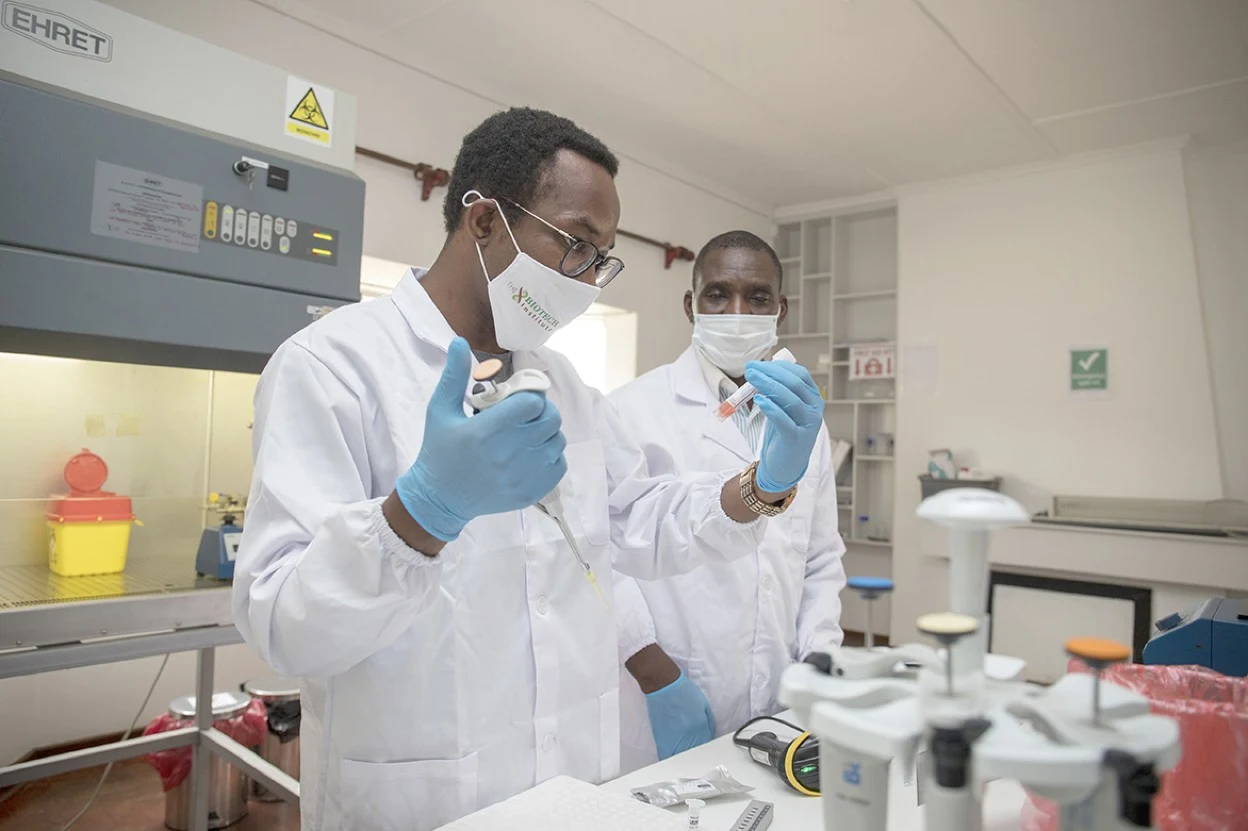Brighton Samatanga is a molecular biophysicist and founder of the Biotech Institute in Harare. / Cynthia R Matonhodze. Zimbabwean scientis...
 |
| Brighton Samatanga is a molecular biophysicist and founder of the Biotech Institute in Harare. / Cynthia R Matonhodze. |
I studied the interactions between cellular proteins and DNA recombinant technology. I want to understand how the gene-editing tool CRISPR makes unintended changes to organisms’ DNA.
I have a faculty appointment at Leipzig University in Germany. But, I took parental leave — which probably becomes a permanent leave — and came home to Zimbabwe. Upon returning home, in August 2020 Samatanga established the country's first privately owned researching biotech institute as a way of turning to science to find solutions to Zimbabwe’s healthcare challenges.
We have three departments: (1) Technical Services; (2) Research and Education; and (3) Public Health. Technical services will support our research with commercial work, including diagnostic tests for the public, such as those for SARS-CoV-2, HIV, and TB. In this image from last November, I’m on the left, showing a technician how to use polymerase chain reaction technology to test for SARS-CoV-2. I shipped the equipment from Germany.
We hope we will soon get government approval to offer degree programs, including graduate courses in molecular biology, biotechnology, and more. We will invest revenue from these into our research. “The research institute is a hub of many things. We have three departments: technical services, research, and education. We have a team of researchers and graduate students in our labs. Our aim is to bring the foremost molecular technology to Zimbabwe as a way to strengthen the country’s health system,” Samatanga told TimesLIVE.
 |
| Brighton Samatanga in his lab at the Biotech Institute in Harare. / Sharon Mazingaizo |
We don’t just want to apply it, we want to understand how it works and make it better. We use the same technology for biomedical applications. Some genetic diseases in people can be corrected by making one or two substitutions, or gene editing,” he said.
The Biotech Institute has come up with an effective way to tackle the Covid-19 pandemic when it comes to testing. “When I set up the research institute, it was at the peak of the Covid-19 pandemic and it made me focus on technologies that can provide fast Covid-19 testing turnaround time. We have a portable battery-powered system known as the RT-LAMP. It can test for Covid-19 in 35 minutes. With a test like this, you can detect the virus quickly and avoid transmission.
“I am using all the competencies I gained during my time in Europe to try to make a difference back home,” Samatanga told Nature. In one research strand, we aim to use CRISPR to edit genes of crops such as maize (corn) to help them become resistant to drought and to pests such as fall armyworm (Spodoptera frugiperda). In this way, we hope to boost food security in Zimbabwe.
Setting up a private research institution in sub-Saharan Africa is very challenging in terms of finances, logistics, and recruitment. Now, we rent a building that is too small for us. And we’re spending money on building our labs. Some people might think this is not a good idea. But I want to give back to Zimbabwe. Indeed it is my home, so it is my national responsibility to improve it.
Further readings
- https://entnemdept.ufl.edu/creatures/field/fall_armyworm.htm
- https://www.timeslive.co.za/news/africa/2021-06-02-zimbabwean-scientist-sets-up-private-research-institute-in-home-country-on-return-from-germany/
- https://www.newzimbabwe.com/top-biophysicist-sets-up-research-hub-in-harare-after-returning-to-zim/
- https://www.researchgate.net/profile/Brighton-Samatanga-2
- https://www.zimbabwesituation.com/news/fighting-food-insecurity-with-crispr-at-zimbabwes-first-private-research-institute/
- https://reviewandmail.com/2021/02/09/prof-samatanga-hunts-zim-covid-variant/
- https://www.herald.co.zw/expert-calls-for-genomic-sequencing/
- https://www.biotechinst.com/CSO.html
- https://home.uni-leipzig.de/mbp/index.php/group-members/
.jpg)



.jpg)


